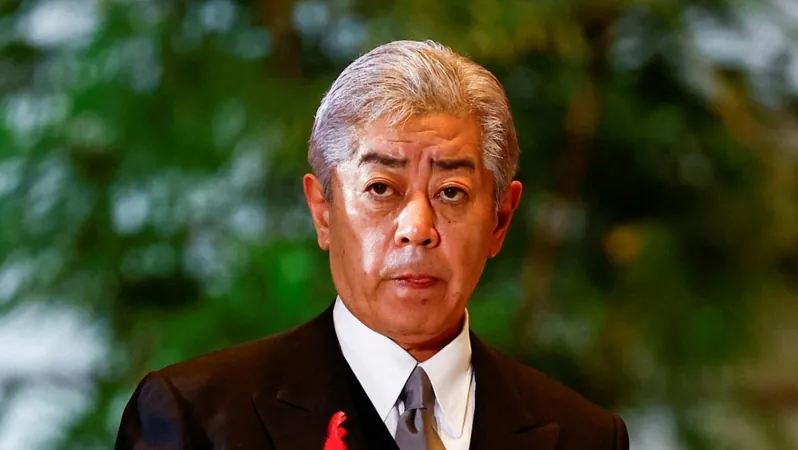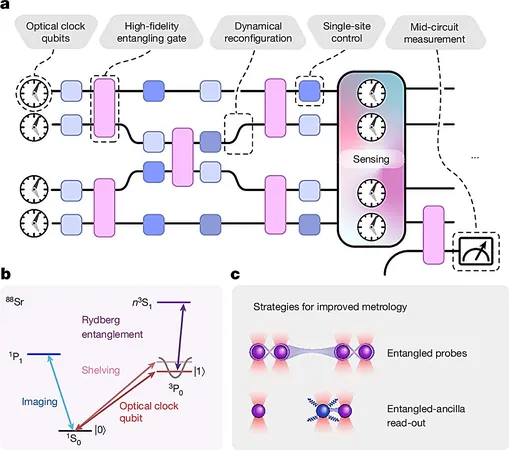
Japan's New Foreign Minister Raises Alarm Over Stabbings and Military Tensions with China
2024-10-09
Author: Arjun
Japan's New Foreign Minister Raises Alarm Over Stabbings and Military Tensions with China
In a significant diplomatic move, Japan's newly appointed Foreign Minister, Takeshi Iwaya, voiced serious concerns during his inaugural phone call with China's Foreign Minister Wang Yi on October 9. The discussions primarily focused on a troubling uptick in violent attacks on Japanese nationals within China, as well as escalating military activities that have sparked concerns in Tokyo.
The conversation comes in the wake of a series of alarming incidents, including the tragic stabbing of a 10-year-old boy attending a Japanese school in Shenzhen last month, which shocked not only Japan but raised questions about the safety of its citizens abroad. Furthermore, in June, a heroic Chinese citizen lost his life while attempting to protect a Japanese mother and her child from a violent assailant during an attack on a school bus in Suzhou. These incidents have ignited fears of growing anti-Japan sentiment among some segments of the Chinese population.
In response to these attacks, Iwaya has urged the Chinese government to implement stronger protective measures for Japanese nationals living in China and has requested a thorough investigation into the circumstances surrounding the schoolboy's tragic death. According to a statement released by Japan's foreign ministry following the call, there was a mutual agreement to maintain ongoing dialogue about these pressing concerns.
Additionally, Iwaya raised alarms over the increasing military activities by China, specifically mentioning an incident in August when a Chinese military aircraft incursion into Japanese airspace marked a concerning first for the two nations. The Japanese Defense Ministry has expressed alarm over this violation of sovereignty, underscoring the evolving security dynamics in the region.
While the Japanese statement did not reveal details of Wang's response, Chinese state media reported that Wang acknowledged Japan's efforts to foster friendly relations and expressed hope for a constructive atmosphere in the bilateral ties. This marks a subtle shift from previous rhetoric, wherein Wang had cautioned about the sensitive state of relations, highlighting ongoing disputes over territorial claims, trade tensions, and food import restrictions.
Wang also emphasized the need to preserve peace in the region, implicitly warning against perceived meddling by external forces, likely referring to the United States, Japan's closest ally. He expressed the hope that Japan would adopt a more balanced and positive perception of China moving forward.
This diplomatic encounter is crucial as both nations navigate the complexities of their relationship, particularly in light of recent geopolitical tensions. Both Japan and China recognize the importance of communication, not just to ensure the safety of their nationals but also to foster stability in a region fraught with historical grievances and modern-day challenges. As discussions continue, the world will be watching to see how these two economic powerhouses manage their delicate relationship amidst rising tensions.





 Brasil (PT)
Brasil (PT)
 Canada (EN)
Canada (EN)
 Chile (ES)
Chile (ES)
 España (ES)
España (ES)
 France (FR)
France (FR)
 Hong Kong (EN)
Hong Kong (EN)
 Italia (IT)
Italia (IT)
 日本 (JA)
日本 (JA)
 Magyarország (HU)
Magyarország (HU)
 Norge (NO)
Norge (NO)
 Polska (PL)
Polska (PL)
 Schweiz (DE)
Schweiz (DE)
 Singapore (EN)
Singapore (EN)
 Sverige (SV)
Sverige (SV)
 Suomi (FI)
Suomi (FI)
 Türkiye (TR)
Türkiye (TR)